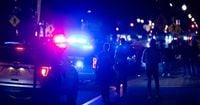On August 19, 2025, the Justice Department launched an investigation into whether police officials in Washington, D.C., falsified crime data—an explosive development in the ongoing political standoff between the Trump administration and city leaders over control of the Metropolitan Police Department. The probe, confirmed by multiple sources familiar with the matter, comes just days after President Donald Trump declared a state of emergency in the nation’s capital, seized authority over the city’s police force for 30 days, and deployed hundreds of National Guard troops and federal agents onto the streets.
The investigation, led by U.S. Attorney Jeanine Pirro’s office, seeks to determine whether Metropolitan Police Department (MPD) officials manipulated crime statistics to make the city appear safer than it really is. As reported by The New York Times and the Associated Press, the exact federal laws that might have been violated remain unclear, but the inquiry is focused on whether false statements or fraud were involved in the production of official crime data.
President Trump himself drew national attention to the issue on August 18, 2025, when he posted on social media: “D.C. gave Fake Crime numbers in order to create a false illusion of safety. This is a very bad and dangerous thing to do, and they are under serious investigation for so doing!” According to The New York Times, this public disclosure added fuel to a feud that has been simmering since Trump took office and began pushing for greater federal control of law enforcement in the capital.
The backdrop for this federal investigation is a city already on edge. Since August 11, Washingtonians have witnessed a significant increase in uniformed presence, as National Guard members and federal agents patrol neighborhoods, stop cars, and make their presence felt in daily life. Trump’s allies argue these measures are necessary, citing what they claim is a worsening crime problem in the city—one that, they allege, is being masked by misleading police statistics.
Yet, city officials and independent observers have pushed back against this narrative. Mayor Muriel Bowser, speaking at a news conference alongside Police Chief Pamela A. Smith on August 11, acknowledged that concerns had been raised about crime data, but insisted the issue was limited in scope. “We are completing that investigation, and we don’t believe it implicates many cases,” Bowser told NBC4 Washington. She further explained that the police chief “had concerns about one commander, investigated all seven districts and verified that the concern was with one person.”
This individual—a commander in the city’s Third District—was placed on paid administrative leave earlier in 2025 after being suspected of manipulating crime data, as reported by NBC Washington and confirmed by the Associated Press. The head of the local police union has also raised alarms, alleging that certain crimes have been deliberately undercounted, though those claims remain under internal review.
Despite the mounting scrutiny, city officials maintain that most major crime categories have actually been declining since 2023. According to MPD data cited by the U.S. attorney’s office in an April 2025 press release, violent crime dropped by 25 percent during the first 100 days of Trump’s current term. Former interim U.S. Attorney Ed Martin praised this trend, stating, “We are proving that strong enforcement and smart policies can make our communities safer.” Homicides, specifically, have fallen 11 percent so far in 2025 compared to the same period last year.
Nevertheless, President Trump and his administration have continued to challenge the accuracy of these statistics, using them as justification for their sweeping federal intervention. Last week, the president declared that crime in the capital was “out of control” and announced that his Justice Department would assume direct oversight of law enforcement in the city. This aggressive move triggered a fierce response from local leaders, who argue that the federal takeover is politically motivated and undermines the city’s autonomy.
The standoff reached a new level on August 15, when the city’s attorney general filed a lawsuit against the Trump administration, accusing it of overstepping its authority in tightening its grip on local law enforcement. That same day, the Justice Department announced plans to curtail the police chief’s authority and demanded that MPD officers provide greater assistance to federal immigration enforcement efforts. After tense negotiations, a tentative truce was reached: Police Chief Pamela A. Smith would retain authority over the department, but MPD would increase its cooperation with federal immigration operations. A federal judge is expected to hold a hearing on the matter later this week, according to The New York Times.
The federal investigation is not the only effort underway to scrutinize the city’s crime figures. America First Legal, a group founded by Trump adviser Stephen Miller, announced last week that it is seeking police and city documents related to possible manipulation of crime data. These parallel inquiries underscore the high stakes of the political battle and the broader national debate over public safety, law enforcement transparency, and federal versus local control.
As the investigation moves forward, both sides are trying to shape the narrative. The Trump administration insists that aggressive federal oversight is necessary to restore order and ensure public safety, while city officials argue that the intervention is a thinly veiled attempt to score political points at the expense of local governance and community trust. The mayor’s office has largely declined to comment on the specifics of the Justice Department’s probe, perhaps wary of further inflaming tensions or prejudicing the ongoing inquiry.
Meanwhile, residents of Washington, D.C., are left to navigate a city transformed by the visible presence of federal troops and agents, along with the uncertainty of what comes next. The outcome of the Justice Department’s investigation could have far-reaching implications—not only for the city’s leadership and its relationship with the federal government but also for the broader issues of police accountability and the politicization of public safety data.
With a federal judge poised to weigh in and new revelations about the accuracy of crime statistics possibly on the horizon, all eyes remain fixed on the capital. The coming weeks promise to be pivotal, as Washington’s leaders, law enforcement officials, and residents await answers—and perhaps a resolution to one of the most consequential showdowns between federal and local authorities in recent memory.




